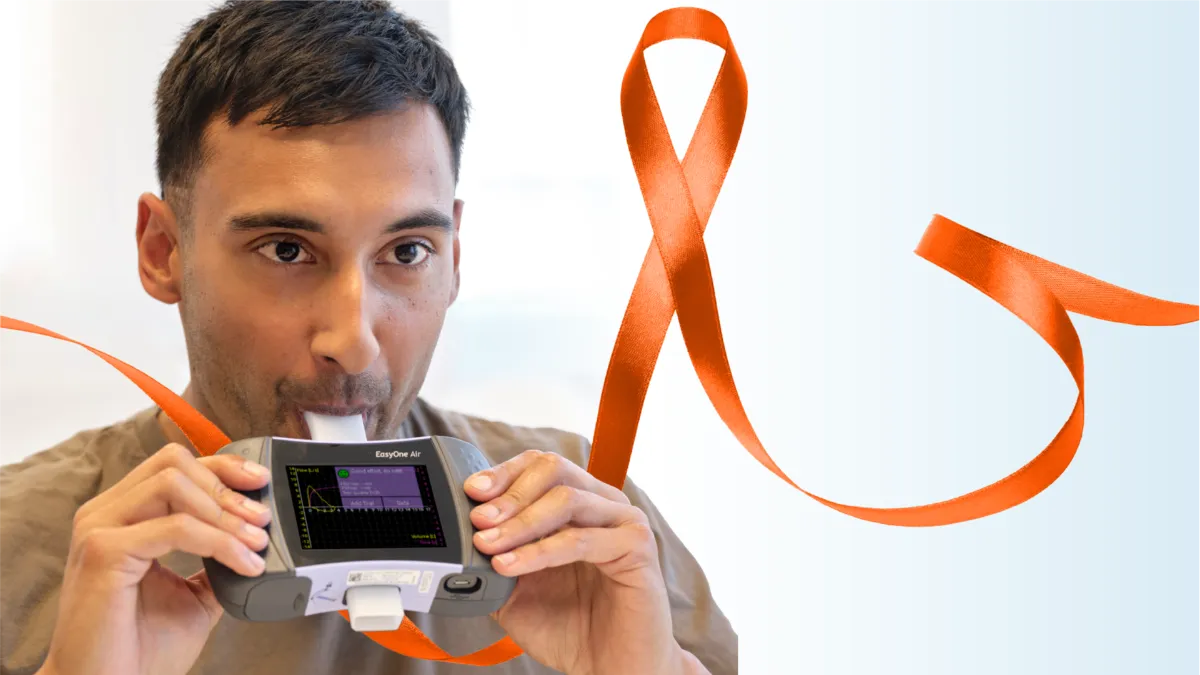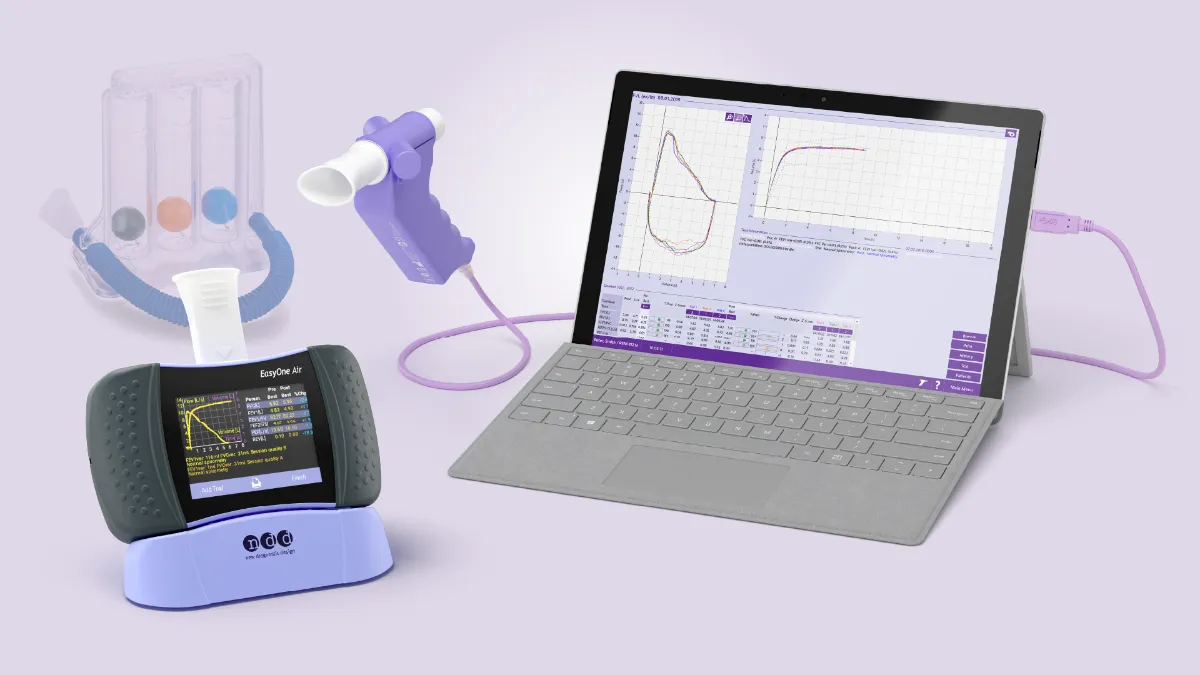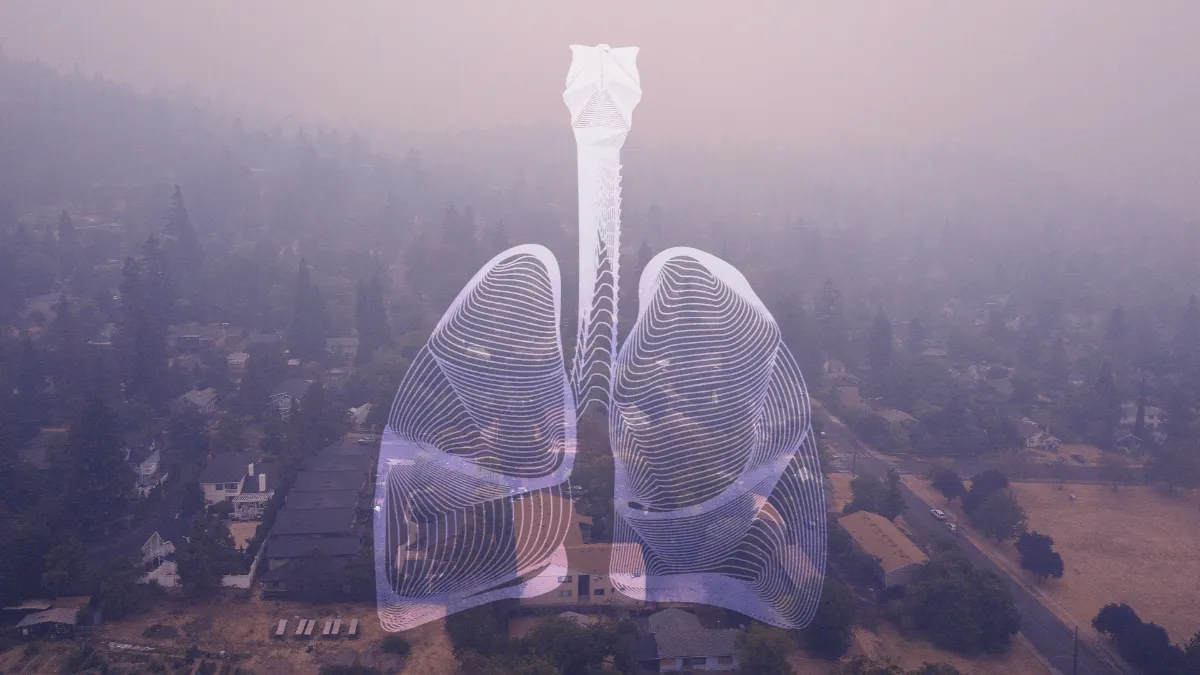Nutrition and COPD

If you have COPD, you’re aware that you must take your medicine, avoid smoking, and follow your doctor’s orders to live your healthiest life. What you may not know is that the food choices you make can affect how you breathe.
There isn’t one food that contains all the nutrients. Eating various foods helps you get the vitamins and minerals you need. Including a registered nutritionist (RDN) in your healthcare team can help get your nutrition on track.
Here, we’ll look at why food matters and what the research shows us about how to eat when living with COPD.
What does food have to do with breathing? #
Metabolism. Metabolism refers to all chemical and physical changes in the body, including turning food into fuel and oxygen into carbon dioxide.
Carbohydrates make more carbon dioxide than fats or proteins, and eating fats produces the least amount.
Low-carb for COPD? #
COPD makes it hard for people to exhale carbon dioxide, causing it to build up, known as hypercapnia. The build-up of carbon dioxide makes it hard to breathe.
Eating carbohydrates, like sugars and starches, increases the amount of carbon dioxide produced. Since people with COPD struggle to exhale carbon dioxide, a diet with fewer carbs and higher fat can help.
Research shows the benefits of a high-fat, low-carb diet for COPD.
An early study in 1985 compared the lung function of those living with COPD and the effects of high-, moderate-, and low-carb diets. Lung function in the low-carb diet group improved by 22% after two weeks. The study concluded that a low-carb, high-fat diet might benefit people with COPD.
A study in 2003 compared people with COPD on high-carb diets to people with COPD that added 2-3 cans of high-fat, low-carb supplement drinks to their diets every evening. After three weeks, the people drinking the supplements had better lung function. The study concluded that lung function in people with COPD could improve from high-fat, low-carb supplements compared to regular high-carb diets.
Some evidence also indicates that the ketogenic diet could reduce inflammation in the lungs of people with COPD. However, further research is needed on the ketogenic diet as a treatment for COPD.
Rebecca Toutant, a registered dietician and wellness manager at Cambridge Health Alliance in Cambridge, Massachusetts, advised that people with COPD may benefit from a low-carb diet.
More research is needed to know if a long-term ketogenic diet is safe for people with COPD and if it’ll improve their health.
The keto diet #
The ketogenic diet, also called the keto diet, puts the body in a metabolic state called ketosis. By eating a diet high in fats and very low in carbs, the body no longer relies on carbohydrates for fuel. Instead, it breaks down fat to produce ketones to use as its fuel source.
Doctors developed the keto diet in the 1920s for treating epilepsy. It’s also being studied for treating some forms of cancer.
COPD is an inflammatory condition, and the keto diet has the potential to be anti-inflammatory, meaning it could reduce inflammation in the lungs. Although more studies are needed, some evidence suggests that low-carb diets may decrease the likelihood of COPD or become therapeutic in people with COPD.
Clinical statements come from these sources:
https://medlineplus.gov/ency/article/002257.htm
https://www.lung.org/lung-health-diseases/lung-disease-lookup/copd/living-with-copd/nutrition
https://www.ncbi.nlm.nih.gov/books/NBK525962/
https://pubmed.ncbi.nlm.nih.gov/3933397/
https://pubmed.ncbi.nlm.nih.gov/12620524/
https://www.cancer.gov/publications/dictionaries/cancer-terms/def/ketogenic-diet
https://pubmed.ncbi.nlm.nih.gov/34414207/









